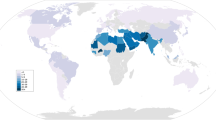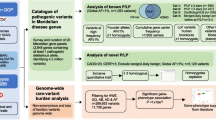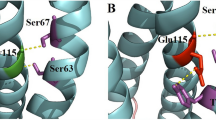Abstract
Objective
To assess the frequency of CYP2D6 *3, *4, *5 and *10 allelic variants in a South Indian population and compare the frequencies with other major populations.
Methods
Polymerase chain reaction (PCR) or PCR-restriction fragment length polymorphism (RFLP)-based methods were used to identify the CYP2D6 genotypes of 106 healthy unrelated male and female volunteers of Tamilian origin. The allele and genotype frequencies observed were compared with other major populations.
Results
The *10 allele was the most frequent mutant allele in Tamilians (20.3%). The *5 allele occurred at 0.9% and the *3 allele was not detected. The most frequent allele causing enzyme inactivation was *4 allele in Tamilians (6.6%), which is significantly higher than that reported in Japanese (0%).
Conclusions
The *10 allele is the most common mutant allele in Tamilians. The CYP2D6*4 and CYP2D6*5 alleles are distributed in a significantly different way in the Tamil population relative to Oriental populations.

Similar content being viewed by others
References
Bertilsson L, Dahl ML, Dalen P, Al-Shurbaji A (2002) Molecular genetics of CYP2D6: clinical relevance with focus on psychotropic drugs. Br J Clin Pharmacol 53:111–122
Abraham BK, Adithan C, Mohanasundaram J, Shashindran CH, Koumaravelou K, Asad M (2001) Genetic polymorphism of CYP2D6 in Tamil population. Eur J Clin Pharmacol 56:849–850
Abraham BK, Adithan C, Shashindran CH, Vasu S, Alekutty NA (2000) Genetic polymorphism of CYP2D6 in a Keralite (South India) population. Br J Clin Pharmacol 49:283–288
Lamba V, Lamba JK, Dilawari JB, Kohli KK (1998) Genetic polymorphisms of CYP2D6 in North Indian subjects. Eur J Clin Pharmacol 54:787–791
Mamidi RNVS, Satyavageeswaram S, Vakkalanka SVS, Chaluvadi MR, Katneni K, Brahmadevara N, et al (1999) Polymorphism of dextromethorphan oxidation in South Indian subjects. Clin Pharmacol Ther 66:193–200
Abraham BK, Adithan C, Kiran UP, Asad M, Koumaravelou K (2000) Genetic polymorphism of CYP2D6 in Karnataka and Andhra Pradesh population in India. Acta Pharmacol Sin 21:494–498
Buch S, Kotekar A, Kawle D, Bhisey R (2001) Polymorphisms at CYP and GST gene loci. Prevalence in the Indian population. Eur J Clin Pharmacol 57:553–555
Kubota T, Yamaura Y, Ohkawa N, Hara H, Chiba K (2000) Frequencies of CYP2D6 mutant alleles in a normal Japanese population and metabolic activity of dextromethorphan O-demethylation in different CYP2D6 genotypes. Br J Clin Pharmacol 50:31–34
Ji L, Pan S, Marti-Jaun J, Hanseler E, Rentsch K, Hersberger M (2002) Single-step assays to analyze CYP2D6 gene polymorphisms in Asians: allele frequencies and a novel *14B allele in mainland Chinese. Clin Chem 48:983–988
Sachse C, Brockmoller J, Bauer S, Roots I (1997) Cytochrome P450 2D6 variants in a Caucasian population: allele frequencies and phenotypic consequences. Am J Hum Genet 60:284–295
Gough AC, Miles JS, Spurr NK, Moss JE, Gaedigk A, Eichelbaum M, Wolf CR (1990) Identification of the primary gene defect at the cytochrome P450 CYP2D locus. Nature 347:773–776
Hanioka N, Kimura S, Meyer UA, Gonzalez FJ (1990) The human CYP2D locus associated with a common genetic defect in drug oxidation: a G1934—A base change in intron 3 of a mutant CYP2D6 allele results in an aberrant 3' splice recognition site. Am J Hum Genet 47:994–1001
Steen VM, Andreassen OA, Daly AK, Tefre T, Borresen AL, Idle JR, Gulbrandsen AK (1995) Detection of the poor metabolizer-associated CYP2D6(D) gene deletion allele by long PCR technology. Pharmacogenetics 5:215–223
Yokota H, Tamura S, Furuya H, Kimura S, Watanabe M, Kanazawa I, Kondo I, Gonzalez FJ (1993) Evidence for a new variant CYP2D6 allele CYP2D6J in a Japanese population associated with lower in vivo rates of sparteine metabolism. Pharmacogenetics 3:256–263
Griese EU, Zanger UM, Brudermanns U, Gaedigk A, Mikus G, Morike K, Stuven T, Eichelbaum M (1998) Assessment of the predictive power of genotypes for the in-vivo catalytic function of CYP2D6 in a German population. Pharmacogenetics 8:15–26
Weerasurya K, Jayakody RL, Smith CAD, Wolf CR, Tucker GT, Lennard MS (1994) Debrisoquine and mephenytoin oxidation in Sinhalese: a population study. Br J Clin Pharmacol 38:466–470
Ismail R, The LK (2001) Genetic polymorphism of CYP2D6: Malaysian Indians have the highest frequency for CYP2D6*4 in Asia. Eur J Clin Pharmacol 57:617–618
Acknowledgements
This research project was funded by Indian Council of Medical Research, New Delhi, India, and INSERM, Paris, France (ICMR ref. no.50/6/2000-BMS dated 11/12/2001). Technical assistance provided by Mr. Balakrishnan R, Mr. Rajan and Ms. Mala is gratefully acknowledged.
Author information
Authors and Affiliations
Corresponding author
Rights and permissions
About this article
Cite this article
Adithan, C., Gerard, N., Naveen, A.T. et al. Genotype and allele frequency of CYP2D6 in Tamilian population. Eur J Clin Pharmacol 59, 517–520 (2003). https://doi.org/10.1007/s00228-003-0657-4
Received:
Accepted:
Published:
Issue Date:
DOI: https://doi.org/10.1007/s00228-003-0657-4




